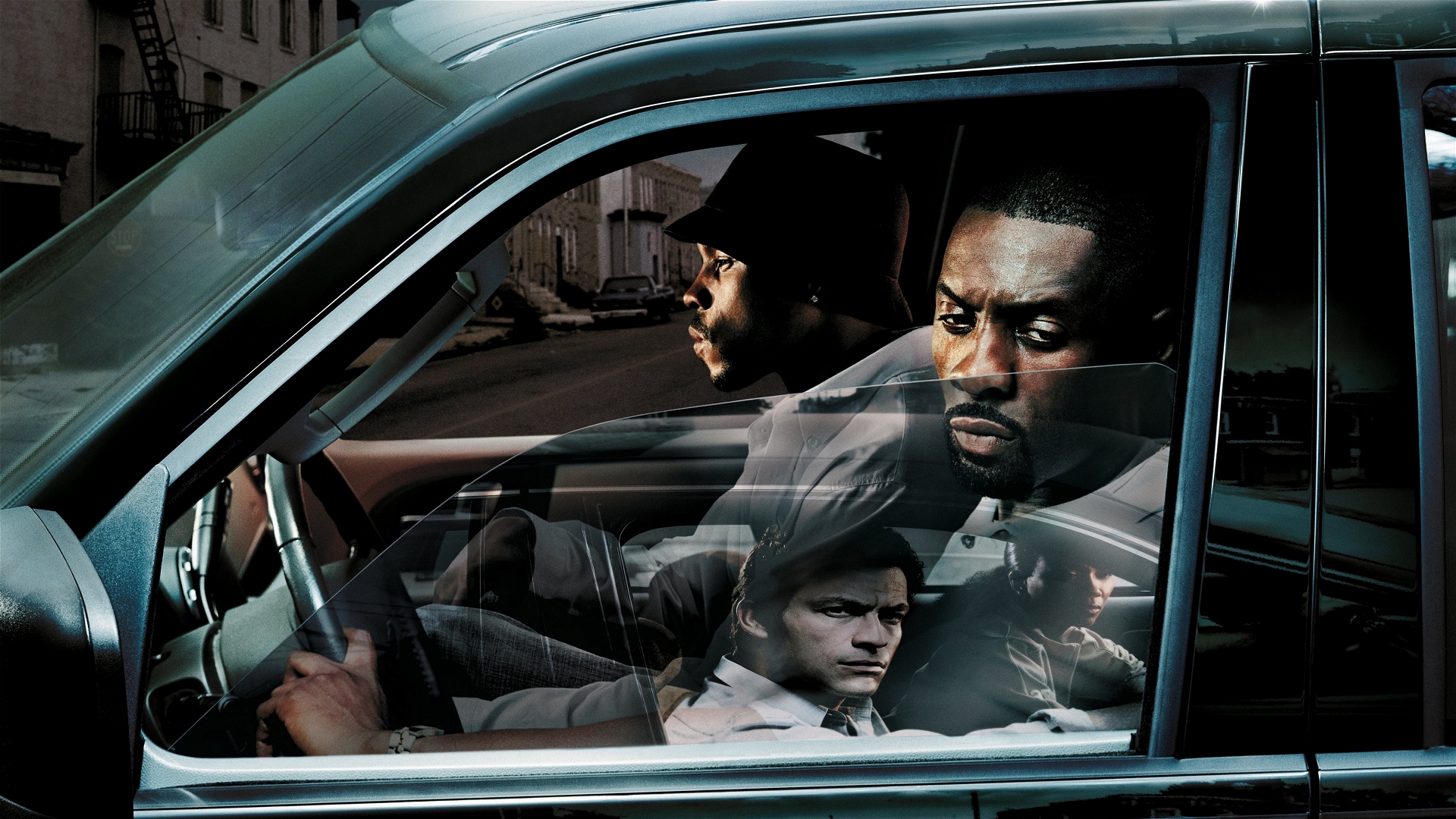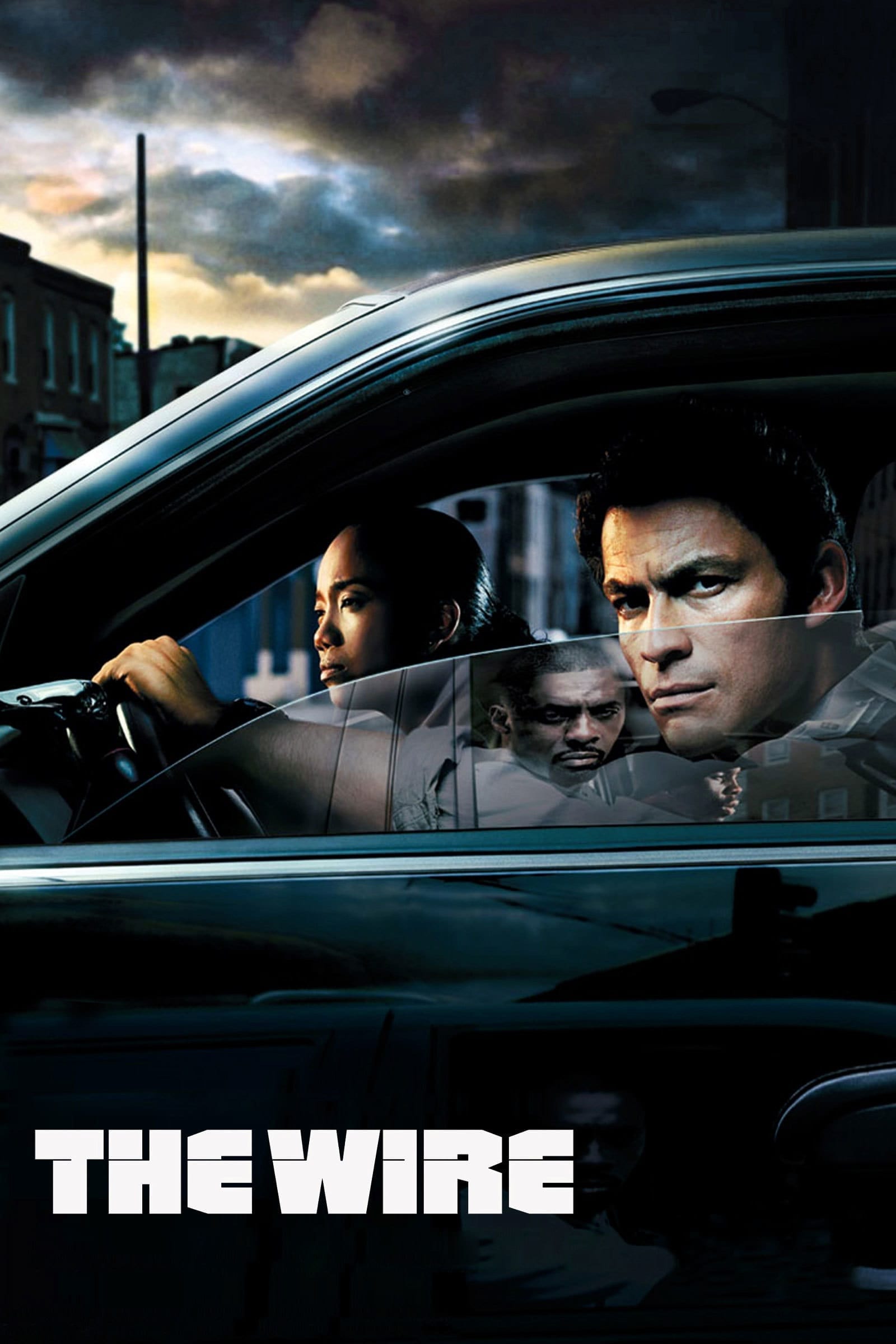
The Wire (2002)
The Wire (2002)
I tried to watch the wire three years ago and I couldn’t even finish the pilot episode so I wouldn’t believe you then if you had told me it would become one of my favorite tv shows. It was too slow for me. It’s still a slow show. But it’s also methodical. In fact, I think the wire is some of the most intelligent and well thought out storytelling ever, if not the most hyper realistic piece of fiction ever. Season 1 perfectly demonstrates the surface level war on drugs via it's array of characters both on the side of law enforcement and those against it.
After finishing season 1 of the wire I was sold on the shows brilliance. However it was season 2 which almost turned me off completely. The show switches its focus from its many cops and black characters to instead focus on white dock workers and their conflict with the union and Greek crime bosses to illustrate the struggle of the death of the white middle class. While the seasons sudden switch comes across as completely bizarre ignoring traditional conventions by ignoring main characters and writing arguably less interesting new characters it’s also thematically one of the most important seasons because of how it demonstrates its topical issues. Famously banned black writer, Ta Nehisi Coates wrote, “It's crazy but unlike most Wire fans, my favorite season is two. I think completely flipping shit and showing how drugs isn't just a "black" problem was incredible.” It was only after finishing season 2 I realized this was a show focused on themes and institutions and whether people can change within those system within each seasons as opposed to a show about a central main character's full journey.
The same focus on class and institution in season 2 becomes essential to the whole show and the next part, season 3. Season 3 focuses on the pre established war on drugs by including the idea of a solution or remedy. The major focus of the season situates on gangster Stringer Bells ascension into the real estate world and upper class money as well as major Colvin's attempt to stop the drug problem by semi “legalizing” drugs by allowing it in a specific area. Both subplots mirror an attempt to change one’s status. On one hand the criminal attempts to "go legit" to change his status, and on the other hand an officer attempts to use illegal activity to change the "criminal status." By the end both attemps fail. Colvin can't change the status of a pre existing system and is demoted and Stringer is sold out by Avon because he realizes just how different he due to his killing D' Angelo and their class backgrounds and is killed. Season three highlights the attempts to change one's status are often undermined by pre existing system. On the opposite end of the spectrum of systemic change we see individual change with Dennis Wise, a formerly released convict escape a life of crime and effectively integrates back into society as a boxer as well as Tommy Carctetti, who runs for mayor and eventually overcomes his infidelity by the end highlighting the individuals attempt to change. For Tommy and Dennis there is success to escape the system as individuals but not so much for Stringer and Bunny to change the system itself as individuals.
Season four further highlights these concepts of escaping systemic change by pivoting from pre-existing central characters almost altogether. This season focuses on the institution of education by following the lives of "good" school children entering the criminal world. It follows "Dukie," Randy, Namond, and Michael. Each character is affected differently by the nature of parental influences and personality versus the nurture of environment of crime and family experience. For example Randy is a moral yet naive child who is pressured by social influences to "snitch" about a murder. This causes him to be targeted as a "snitch" when criminals burn down his home and family leaving him without a source of "nature" to return to and when the cop Carver who was designated to take care of him leaves so does nature. The same conflict follows "Dukie" who is smart, resourceful, kind, and shy. Dukie is mentored by his teacher and avoids crime but when his drug addict parents lose their home he loses a source of "nature" and is forced into the "nature" provided by Michaels home provided by Marlo which brings us to Michael. He is composed and moral but also ruthless and determined. He is propositioned by drug dealers to deal but his nature refuses. However after learning that his stepfather, implied to have sexually assaulted him is returning from prison, he turns to crime and lets Marlo and Chris kill his dad so he can care for his younger brother, which indebts him to them.
Because of the suffering of his nature Michael becomes a cold blooded criminal by nurture. The only character able to escape this crime cycle is Namond. Namond is by nature very arrogant and disruptive. He wants to be a criminal the most but is too lazy for the work. He is later mentored by Bunny Colvin from the previous season in a special class for disruptive students. Namond's mom proving to be a bad "nature" causes Bunny to go to his father in prison and "adopt" him which gives Namond the environment to be nurtured and escape a life of crime and yet the biggest irony is that he is only able to escape because of a life of crime provided privilege. Prezbelweski, a former cop turned teacher tries to mentor each of these children individually but can't keep up for the external forces that the education system actively ignores prioritizing "juked stats". By the end of the season Carcetti is elected as Mayor, and campaigns on vowing to change the education system that has left these children without providers but as seen from a system that can't change, the individuals can't seem to change either. In the end of season four, McNulty returns encounters Bodie again for lunch who is killed after being seen "snitching." This causes McNulty to take up working on a detective case after vowing to avoid that and his alcoholism which segways back into his personal journey in season 5.
Season five of the Wire then returns to McNulty and the next institution, journalism so it can ask the questions it wants to. Can the world change? Can people like McNulty change? In season five, McNulty has been driven back by the immorality of Bodies death, but he is driven by recklessness and indulges back in alcoholism and infidelity. Journalism in the backstage has begun to prioritize the profit of lies over truth. The show introduces us to the honorable senior Gus and the new reporters Scott and Alma. Gus is convinced Scott is making up stories and Alma is skeptical too but Scott is protected by the higher ups. This subplot resonates with McNulty who decides with Lester to fake a serial killer so he can catch Marlo and Chris responsible for last seasons "vacant" killings. This correlation is determined to show a conflict between traditionalism and modernism and lieing for a just reason vs an injust one. This change is prompted by McNulty. Eventually Scott, who has been making up stories uncovers what McNulty has been doing but because he's lied so much, he knows if he tells McNulty's story no one will believe him. Theres a great contrast here between lying for a just cause vs an injust one. However, Daniels soon learns that McNulty has been faking a serial killer stalking the homeless and he confronts Carcetti. Carcetti who has been running a campaign for governor based on homelessness realizes if he exposes the serial killer as fake, he will lose support. As a result an increasingly corrupted Carcetti gives in and covers it up but demotes McNulty and Lester. By the end Carcetti has been corrupted because his very search for the power to change things requires him to lie and sacrifce and he ends up succumbing to the same cycle every other politician faces, eating "shit." McNulty who had returned to cheating makes ammends with his girlfriend Beadie returning to his same cycle of recovery in self destructive relationships. THE cycle continues.
The ending of season five ends with McNulty viewing the city waiting to take a homeless man he mistreated back home. This cuts to a montage of the opening theme from season one which is fitting to suggest the cycle continues. The montage shows all the characters continuing the cycle or breaking it just for other characters to enter. As the montage begins to end, it cuts to footage of the city and of the people of Baltimore just as it had earlier in the same episode to illustrate this is a story about a city. In many ways McNulty as character himself is an allegory for the process of the city itself. He, like the city is someone who has changed only to end up somewhere near the same place where he started. As the story ends, McNulty enters the car and takes the man saying, "Let's go home." It's implied because McNulty feels regret for the man, he might change but judging from what we've seen he might not. The ending of the show allows us to reflect not on answers but on questions. Whereas most shows indulge in "copoganda" attempting to justify and rationalize the behavior of cops, The Wire neither one hundred percent condemms or justifies the institutions it's critiquing. It just portrays things the way they are: as a cycle. And "all the pieces matter."
Loading




